From the January 19, 1990 Chicago Reader. –J.R.
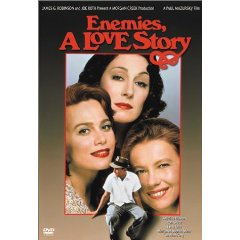
ENEMIES, A LOVE STORY
*** (A must-see)
Directed by Paul Mazursky
Written by Roger L. Simon and Mazursky
With Ron Silver, Anjelica Huston, Lena Olin, Margaret Sophie Stein, Alan King, Judith Malina, and Mazursky.
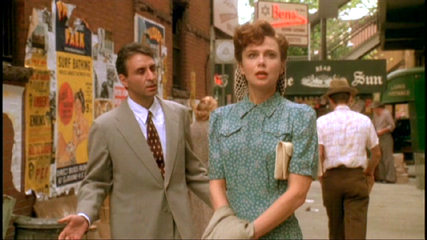
It’s a truism of film criticism that the best movie adaptations of novels usually aren’t taken from the best novels. A good novel, like a good movie, has its own raison d’être, and attempting to translate one person’s novel into another person’s movie usually entails removing the novel’s raison d’etre or at least transmogrifying it beyond recognition. A classic example of misplaced piety, in the sense of a movie trying to follow a novel too closely, is Joseph Strick’s Ulysses (1967): despite the fact that characters, settings, and entire textual passages from Joyce are all dutifully delivered and rendered, Joyce himself is absent from the movie. The personal, historical, and formal determinations of the book have nothing to do with those of the director of the film, working almost half a century later. The gap between Joyce’s reasons for writing Ulysses and Strick’s reasons for adapting it is so cosmically wide that the two sets of motivations aren’t even on speaking terms. Read more
From the Autumn 2019 Cinema Scope (https://cinema-scope.com/columns/global-discoveries-on-dvd-compulsively-yours-including-a-few-real-life-confessions-admissions/). — J.R.
Although I’m no longer a member of Il Cinema Ritrovato’s DVD jury, two other visitors to Bologna in June who are familiar with this column presented me with new DVDs:
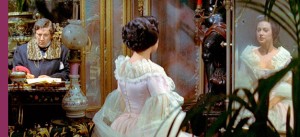
1. A year ago in this column, while celebrating Edition Filmmuseum’s PAL DVD release of Max Ophüls’ Liebelei (1933) and the German version of his 1955 Lola Montez (which I misspelled as Lola Montès, the title of the French version), I registered the minor complaint that the “bilingual” booklet, which I hoped would explain how and why Marcel Ophüls finally withdrew his obscure objection to the German version (which I regard as the best version, above all for its colours), was only in German. It turns out that this lapse was just a printing error, and the corrected bilingual version of this two-disc set is now available. (Furthermore, I gather that the withdrawn objections of Ophüls fils were basically a matter of money.) Combined with the recent and long-overdue publication of François Truffaut’s Chronique d’Arts Spectacles 1954-1958 — Gallimard’s collection of his texts for a prominent right-wing weekly that, in the opinion of some French cinephiles, are superior to his reviews for Cahiers du Cinéma, and which includes some rapturous writing about Lola Montès (the French version), including praise for its “[un]natural” colours — this makes me want to re-see the German version yet again. Read more
From Time Out (London), October 1, 1976. As I point out in my first collection, Placing Movies (1995), my flip comparison of moviegoing and sex in the latter part of this article led Robin Wood in the Times Educational Supplement (22 October 1976) to virtually link me with the downfall of Western civilization: “The implicit trivialization of art and life is the ultimate stage in our alienation.” This was some time before he declared Celine and Julie Go Boating a masterpiece on his own terms, bringing in a feminist perspective that my own appreciation sorely lacked.–- J.R.
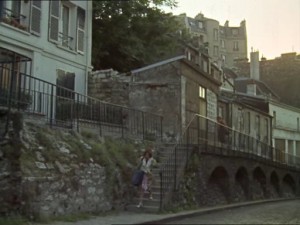
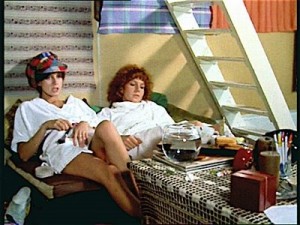
The Plot Thickens
I’ve said it before and I’ll say it again: Jacques Rivette is the most important director working in the narrative cinema today. And Celine and Julie Go Boating, while it may not be his most important achievement, is by commonconsent the most enjoyable and accessible of all his movies to date It is also the first of his films to open commercially in England In over a decade. The two movies he has made since, Duelle and Noroît, will both be shown at this year’s London Film Festival — along with Sérail, the first feature by Eduardo de Gregorio, Rivette’s scriptwriter.
Considering the fact that all of Rivette’s most exciting and innovatory work has been made over the past ten years, one might well ask why it has taken so long for any of this work to be released here. Read more





